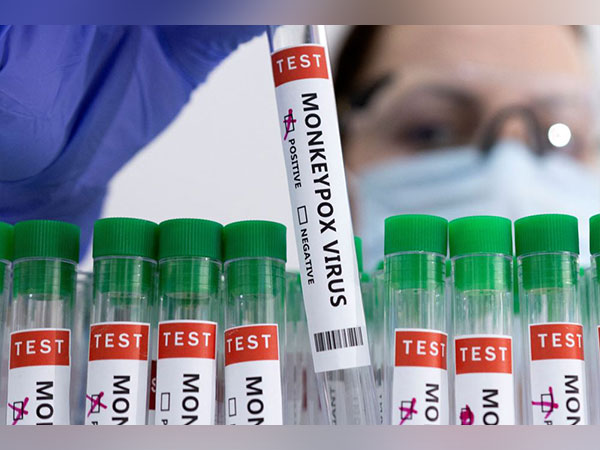Health News Roundup: Vietnam reports first case of monkeypox- state media; Bubs Australia seeks permanent market access from U.S. FDA and more
The Cambridge, Massachusetts-based pharmaceutical company turned down China’s request to hand over the recipe for its mRNA vaccine because of commercial and safety concerns, the newspaper said, citing people involved in negotiations that took place between 2020 and 2021, adding that the vaccine maker is still “eager” to sell the product to China. Pakistani hospital overwhelmed as water-borne illnesses spread The emergency ward at the main government hospital in Sehwan, a small town in southern Pakistan, is overwhelmed.

Following is a summary of current health news briefs.
Vietnam reports first case of monkeypox- state media
Health authorities in Vietnam's Ho Chi Minh City on Monday announced the country's first case of monkeypox, the state-run Vietnamnet newspaper reported, without giving any details on the patient.
Bubs Australia seeks permanent market access from U.S. FDA
Baby formula maker Bubs Australia Ltd said on Monday it is seeking permanent access to the U.S. market after the Food and Drug Administration (FDA) spelled out how companies that have been filling a temporary shortage can become long-term suppliers. Bubs said it had lodged a letter of intent with the U.S. FDA for permanent market access to October 2025 and beyond, adding that the FDA will issue a letter of acknowledgement in response.
Moderna refused China request to reveal vaccine technology - FT
Moderna Inc has refused to hand over to China the core intellectual property behind the development of its COVID-19 vaccine, leading to a collapse in negotiations on its sale there, the Financial Times reported on Saturday, citing people familiar with the matter. The Cambridge, Massachusetts-based pharmaceutical company turned down China’s request to hand over the recipe for its mRNA vaccine because of commercial and safety concerns, the newspaper said, citing people involved in negotiations that took place between 2020 and 2021, adding that the vaccine maker is still “eager” to sell the product to China.
Pakistani hospital overwhelmed as water-borne illnesses spread
The emergency ward at the main government hospital in Sehwan, a small town in southern Pakistan, is overwhelmed. On a recent visit, Reuters witnessed hundreds of people crammed into rooms and corridors, desperately seeking treatment for malaria and other illnesses that are spreading fast after the country's worst floods in decades.
AstraZeneca pays 660% premium for gene therapy firm LogicBio
Shares of LogicBio Therapeutics skyrocketed on Monday after Britain's AstraZeneca's said it would buy the U.S.-based gene therapy developer at a rare 660% premium for $68 million. LoigBio's shares, which have traded below $1 since February, were up 637% at $2 before the bell, close to AstraZeneca's offer price of $2.07 per share.
Nobel medicine prize goes to explorer of ancient DNA
Swedish geneticist Svante Paabo won the 2022 Nobel Prize in Physiology or Medicine on Monday for discoveries that underpin our understanding of how modern-day humans evolved from extinct ancestors. Paabo, director at the Max Planck Institute for Evolutionary Anthropology in Leipzig, Germany, won the prize for "discoveries concerning the genomes of extinct hominins and human evolution," the Award committee said.
Cholera kills at least seven in Haiti as disease returns
Haiti on Sunday said at least seven people have died of cholera in a surprise return of the disease that comes as the nation is paralyzed by a gang blockade that has triggered shortages of fuel and clean drinking water. The disease killed some 10,000 people through a 2010 outbreak that has been blamed on a United Nations peacekeeping force. The Pan American Health Organization in 2020 said Haiti had gone a year with no confirmed cholera cases.
Worst ever bird flu crisis in Europe raises risks for next season - EFSA
Europe has experienced its worst bird flu crisis ever this year with nearly 50 million poultry culled, and the persistence of the virus over the summer has raised the risk of widespread infections next season, the EU's Food Safety Agency (EFSA) said. The spread of highly pathogenic avian influenza (HPAI), commonly called bird flu, is a concern for governments and the poultry industry due to the devastation it can cause to flocks, the possibility of trade restrictions and a risk of human transmission.










